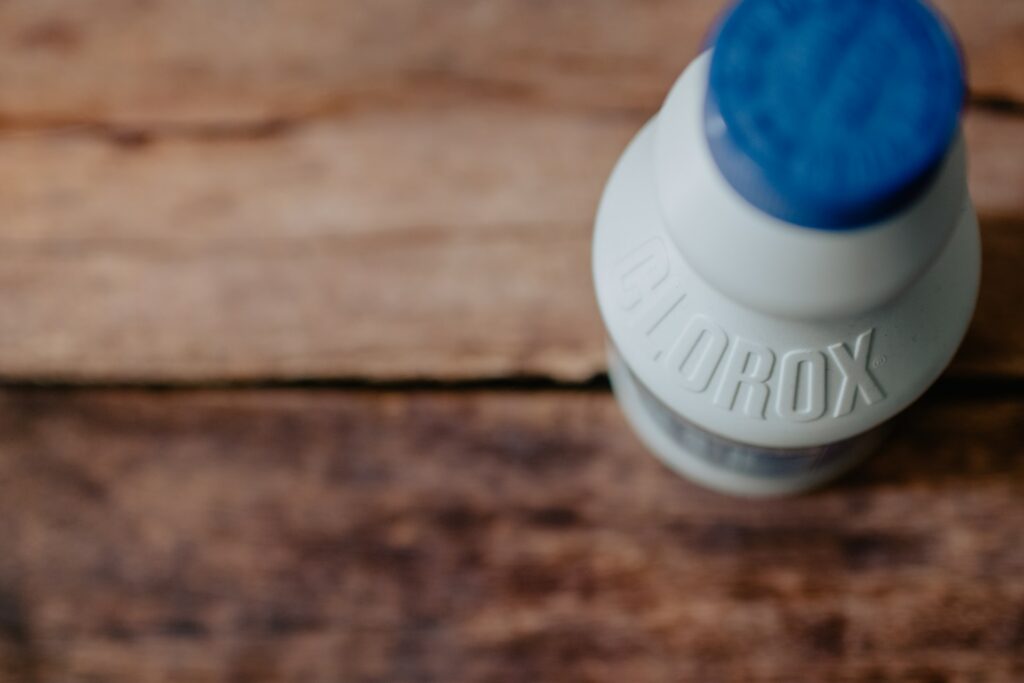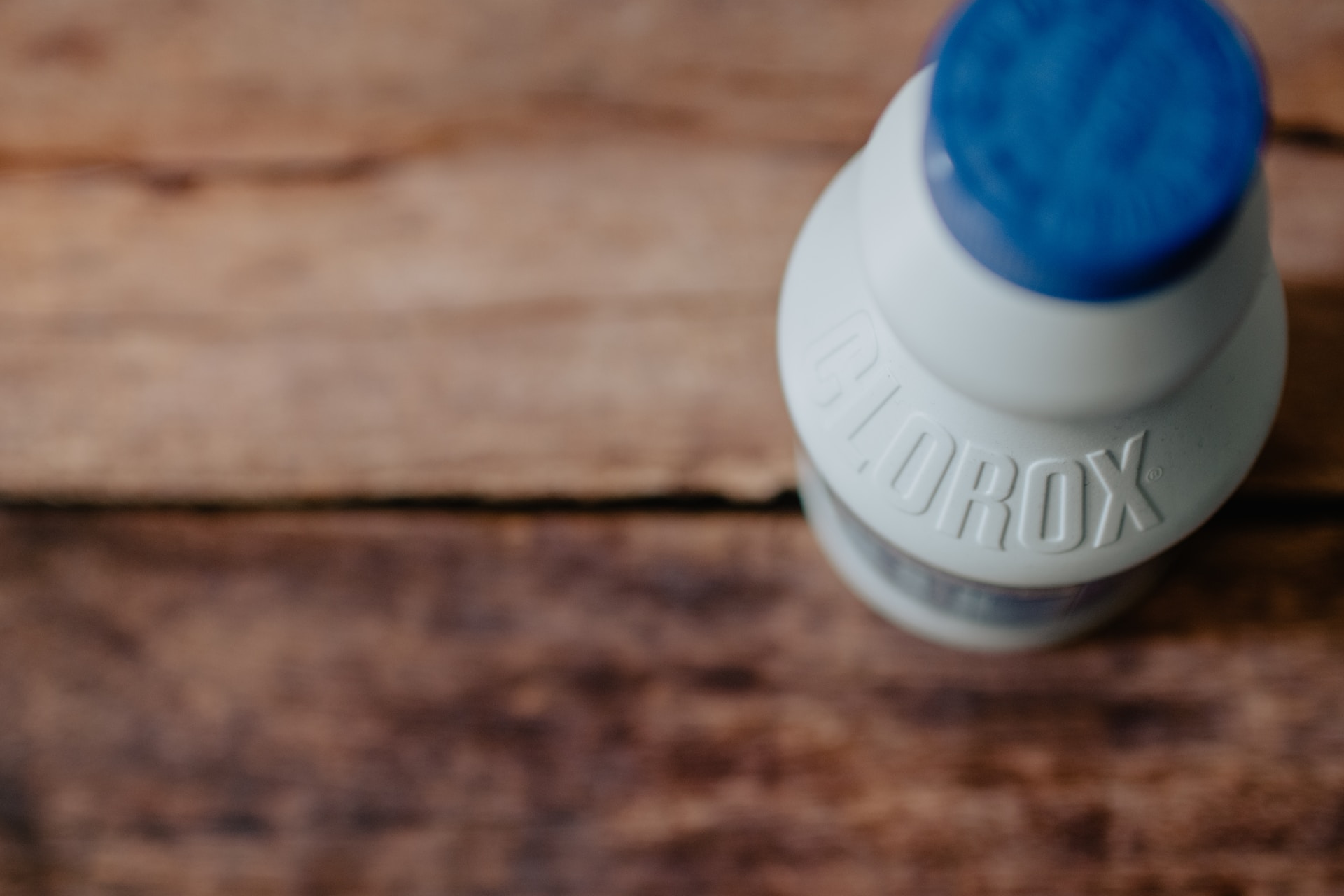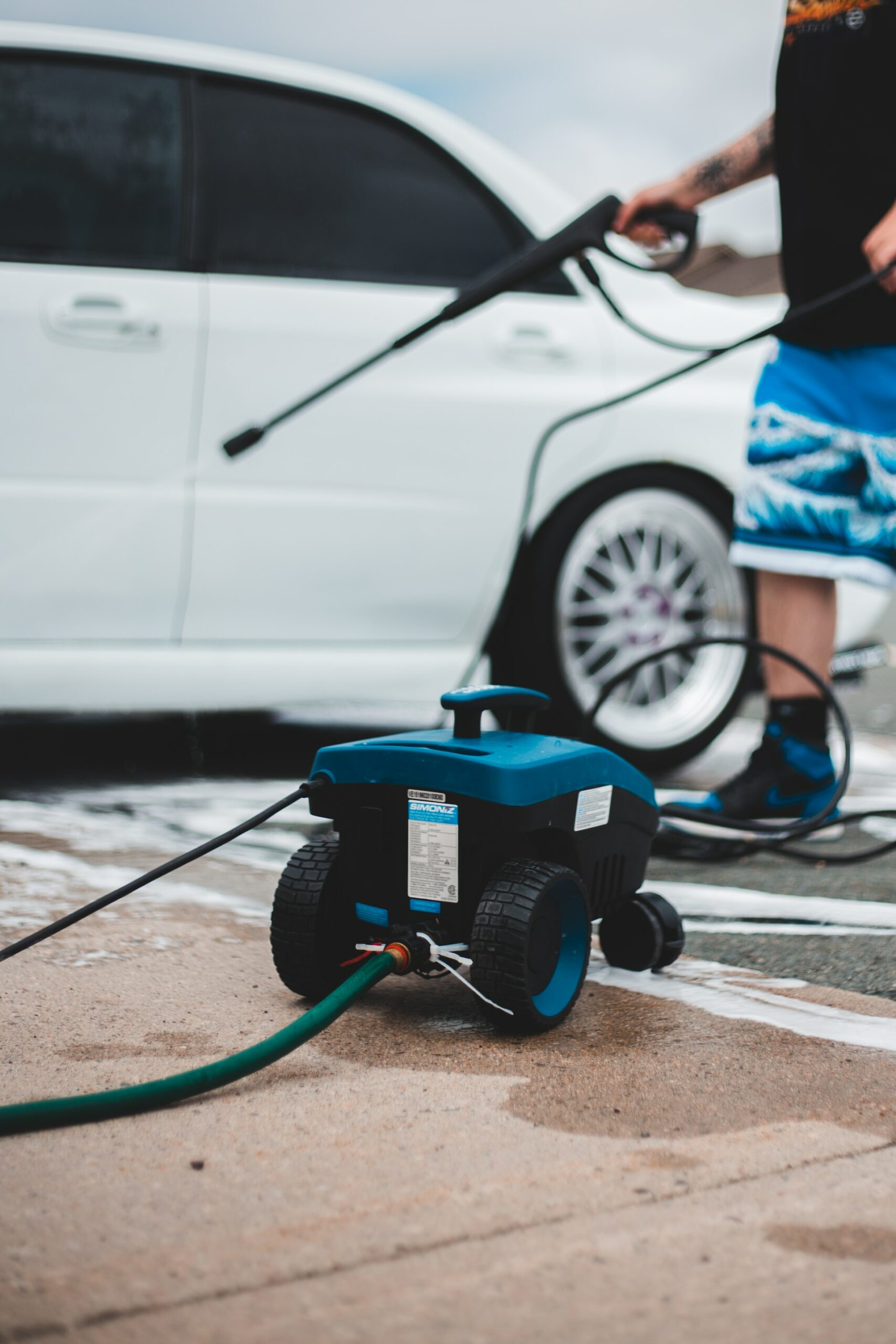When cleaning a surface, you generally need two things. One is something to get rid of any dirt on the surface. Usually, this is a cloth or a brush. In this case, it’s a pressure washer. The second thing you need is a cleaning agent. This penetrates the top layer of an object and pulls out any remaining grime that wasn’t removed in the first pass.
Soaps and other cleaners are generally used for this, but bleach will often outperform them. However, bleach doesn’t always get the attention it deserves when it comes to outdoor cleaning due to its reputation. So is bleach actually safe to use? Will it damage your property, or even hurt the ecosystem around your house? Let’s discuss.
What is Bleach?
Contrary to popular belief, bleach is not one specific compound, but a group of chemicals that share one similar property: they are all oxidizers. Without getting too deep into the technical side, bleach essentially corrodes the top layer of a surface. This is also why bleach is so dangerous to skin. But that shouldn’t deter you.
Just because it has risk factors doesn’t mean it’s unsafe. The same rings true with pressure washers, vehicles, and any other tool you’d care to name. That’s why it’s important to know how to use them safely and effectively.
Is Bleach Safe?
Since bleach is corrosive, there are three big ways that it can be dangerous: your skin, eyes, and lungs can be damaged from contact with bleach or bleach vapors. That doesn’t mean that it shouldn’t be used, though. In fact, almost all of the bleach’s downsides can be negated by just a couple of pieces of safety equipment.
Gloves and goggles are a must to protect your hands and eyes. In an outdoor environment, respiratory problems relating to the use of bleach are rare. If you’re using it indoors, be sure to have proper ventilation so fumes don’t build up. That’s not to say that bleach isn’t dangerous when misused, but as long as you understand its properties, it won’t pose great danger.
If you do happen to come into direct contact with bleach, be sure to rinse with water immediately and follow any further instructions on the package. Immediate attention is required for any contact with bleach.
Will Bleach Cause Damage?
Whenever bleach is discussed as a cleaning agent, this is one of the biggest concerns that homeowners may have. Everyone has a story about how bleach ruined a shirt or stained a counter. Bleach is very good at pulling color out of clothing, whether it’s the intentional pigments or the unintended stains. But what about the property outside the house? Well, it depends.
When using bleach, you should avoid metals like the plague. The oxidizing property of bleach will quickly damage any metals. Aside from that, most of your outdoor furniture should be safe. It should be noted, however, that no matter the material, you want to keep track of how long the bleach sits on it. Bleach can be corrosive to many materials if given enough time. If you’re unsure if a specific material is bleach-safe, it’s always better to do a little bit more research on that particular material.
Will Bleach Damage My Home’s Ecosystem?
As bleach is a chemical, there’s an unavoidable risk involved when using it in any ecosystem. Undiluted bleach can create dead spots on patches of grass if it’s applied to a surface without thought. Rinsing off the bleach can also cause it to flow to more at-risk sections of your yard.
These risks can be mitigated rather effectively by managing runoff and using the chemical conservatively through dilution. It’s an unfortunate reality as well that a large share of pressure-washing cleaning chemicals are not particularly environmentally friendly. That being the case, it’s not worth avoiding bleach for its own sake – especially since bleach is actually the gentler option compared to many other cleaners. All it means is that a little more care is needed when applying the agent.
But this is true of many chemicals, and it shouldn’t deter you from using bleach. As long as you do your research, wear protection, and watch for runoff, you’ll be more than safe. If you’re not sure or are worried about the potential impact bleach may have, give us a call. We’re more than happy to help you purge any pesky stains from your property.


